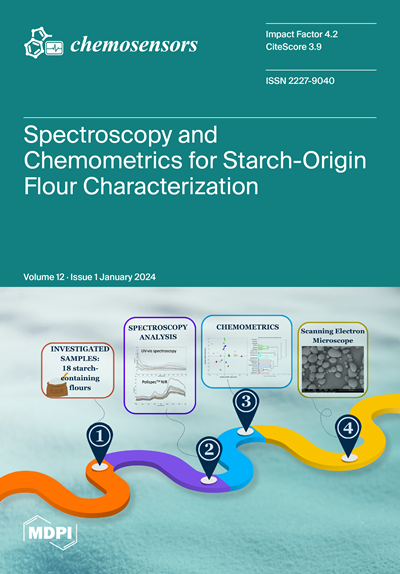固相萃取-气相色谱-质谱联用研究膨润土、单宁及其组合在白葡萄酒发酵过程中的应用效果
IF 3.7
3区 工程技术
Q2 CHEMISTRY, ANALYTICAL
引用次数: 0
摘要
为了研究膨润土、单宁及其组合对酒精发酵的影响,对Malvazija istarska (Vitis vinifera L.)白葡萄进行了95 g/L的膨润土和25 g/L的水解单宁制剂处理,而第三组处理同时使用上述两种剂的剂量。对照葡萄必须在不添加膨润土和外源单宁的情况下发酵。所有生产的葡萄酒都在发酵后用膨润土进行了额外的细化,以达到完全的蛋白质稳定性。对发酵后和膨润土精制后的葡萄酒进行了分析。采用OIV法测定标准理化参数,采用高效液相色谱二极管阵列检测(HPLC-DAD)分析酚类物质,采用固相萃取(SPE) -气相色谱-质谱联用(GC-MS)测定游离和结合挥发性芳香化合物浓度。膨润土和单宁在发酵过程中通常会减少膨润土完全稳定所需的总剂量。膨润土处理略微降低了总干浸出物的浓度,而单宁则保持了总酸度。膨润土对黄酮类化合物的负作用更为严重。单宁在发酵过程中比对照酒保存了更多的羟基肉桂酸,膨润土进一步增强了这一作用。所有处理都影响了挥发性和结合性香气组成,而单宁的添加增加了几种重要芳香酯的浓度,如己酸乙酯、癸酸乙酯和乙酸己酯。用膨润土进行额外的细化以完成蛋白质稳定,使发酵后观察到的一些积极效果失效。本文章由计算机程序翻译,如有差异,请以英文原文为准。
Solid-Phase Extraction Followed by Gas Chromatography–Mass Spectrometry for Revealing the Effects of the Application of Bentonite, Tannins, and Their Combination during Fermentation in the Production of White Wine
To investigate the effects of the application of bentonite, tannins, and their combination in alcoholic fermentation, Malvazija istarska (Vitis vinifera L.) white grape must was treated with 95 g/L of bentonite, 25 g/L of a hydrolysable tannin preparation, while the third treatment received the aforementioned doses of both agents. Control grape must was fermented without bentonite and exogenous tannins. All of the produced wines were additionally fined after fermentation with doses of bentonite needed to achieve complete protein stability. Wines were analyzed both after fermentation and after additional bentonite fining. Standard physicochemical parameters were determined by the OIV methods, and phenols were analyzed by high-performance liquid chromatography with diode-array detection (HPLC-DAD), while the concentrations of free and bound volatile aroma compounds were obtained after solid-phase extraction (SPE) followed by gas chromatography–mass spectrometry (GC-MS). Bentonite and tannins in fermentation generally reduced the total dose of bentonite needed for complete stabilization. Treatments with bentonite slightly decreased the concentration of total dry extract, while tannins preserved total acidity. The negative effect of bentonite on flavonoids was more severe. Tannins in fermentation preserved more hydroxycinnamoyltartaric acids with respect to control wine, and this effect was additionally enhanced by bentonite. Volatile and bound aroma composition was affected by all the treatments, while the addition of tannins resulted in higher concentrations of several important odoriferous esters, such as ethyl hexanoate, ethyl decanoate, and hexyl acetate. Additional fining with bentonite to complete protein stabilization annulled some of the positive effects observed after fermentation.
求助全文
通过发布文献求助,成功后即可免费获取论文全文。
去求助
来源期刊

Chemosensors
Chemistry-Analytical Chemistry
CiteScore
5.00
自引率
9.50%
发文量
450
审稿时长
11 weeks
期刊介绍:
Chemosensors (ISSN 2227-9040; CODEN: CHEMO9) is an international, scientific, open access journal on the science and technology of chemical sensors published quarterly online by MDPI.The journal is indexed in Scopus, SCIE (Web of Science), CAPlus / SciFinder, Inspec, Engineering Village and other databases.
 求助内容:
求助内容: 应助结果提醒方式:
应助结果提醒方式:


